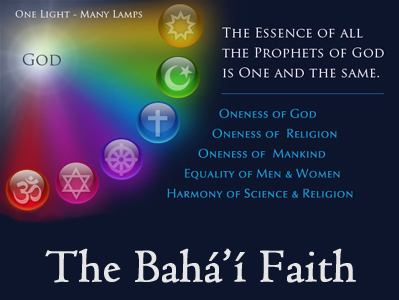The Bahá’í Faith, a contemporary global religion, underscores the profound consequences of war, advocating for harmony, unity, and peace. Bahá’u’lláh, the founder of the Bahá’í Faith, articulates a compelling narrative about the futility of war, providing insights that resonate deeply within the context of modern society. This exploration delves into several critical themes within the Bahá’í teachings that serve as warnings about war, emphasizing the interconnectedness of humanity and the imperative for collective consciousness.
The Inevitability of Conflict
Throughout history, humanity has been embroiled in conflicts that often appear unavoidable. Yet, the Bahá’í teachings offer a clarion call for understanding the root causes of such strife. Wars typically emerge from divisions — be they ideological, nationalistic, or religious. The Bahá’í perspective recognizes the artificiality of these divisions. Through the lens of the Bahá’í Faith, real power lies not in clinging to individual identities that foster discord but rather in embracing a global identity as part of the human family. By urging individuals to transcend their narrow self-interests, Bahá’u’lláh articulates a vision that seeks to diminish the likelihood of armed conflict.
Humanity as One
One of the core tenets of the Bahá’í Faith is the concept of the oneness of humanity. This foundational principle posits that all humans are intricately linked, transcending geographical, racial, and cultural boundaries. From this perspective, conflict becomes not just a political or territorial dispute but a profound betrayal of our shared humanity. The Bahá’í teachings warn that when communities or nations pursue warfare, they not only inflict suffering upon one another but also forget their shared essence. The interconnectedness emphasized in Bahá’í scriptures highlights the catastrophic repercussions of engaging in hostilities — repercussions that reverberate through societies, economies, and ecosystems.
The Spiritual Consequences of War
In the Bahá’í worldview, war is not only a physical confrontation but also a spiritual affliction that can debilitate the soul of nations. The Bahá’í teachings articulate that each act of violence or aggression diminishes the moral and spiritual fabric of society. Such actions lead to the erosion of virtues such as compassion, understanding, and justice. Bahá’u’lláh implores humanity to cultivate these virtues rather than succumb to the primal instincts that lead to war. He asserts that the enlightenment of the individual and society is fundamentally jeopardized by the existence of war, thereby underscoring the necessity for fostering pathways towards peace and coexistence.
Historical Lessons and Their Relevance
The historical chronicles of warfare serve as cautionary tales replete with lessons that remain applicable today. The Bahá’í teachings urge a reflective examination of past conflicts, advocating for a learned approach that recognizes the patterns of violence and the cyclical nature of human conflict. Wars throughout history have frequently stemmed from economic disparity, power struggles, and an inability to communicate effectively across cultural divides. The Bahá’í Faith emphasizes that to avert future conflicts, societies must cultivate a culture of dialogue, particularly among differing groups. By advocating for an inclusive discourse, Bahá’í teachings aspire to heal historical wounds and foster mutual understanding.
The Role of Education
Education emerges as a pivotal theme in the Bahá’í Faith concerning the prevention of war. Instilling principles of unity and peace in educational systems is fundamental. The Bahá’í writings espouse the notion that education should transcend rote learning to encompass moral education, thereby nurturing individuals who will champion peace and justice in their communities. Enlightening the minds of the youth engenders a generation equipped with the tools necessary to dismantle the prejudices and misconceptions that often lead to conflict. The Bahá’í approach advocates for teaching the value of collaboration over competition, fostering a global culture that eschews war as a means of resolving disputes.
The Urgency of Collective Action
In a world increasingly fraught with tension, the Bahá’í Faith underscores the urgency of collective action in addressing the conditions that lead to war. Bahá’u’lláh emphasizes the importance of cooperative efforts among nations. The Bahá’í teachings call for the establishment of global institutions that can facilitate dialogue, mediate conflicts, and provide frameworks for addressing grievances without resorting to violence. Such institutions are envisioned not just as arbitrators in disputes but as platforms for cultivating goodwill, understanding, and shared aspirations among disparate communities.
Conclusion
As contemporary society continues to grapple with the specter of war, the Bahá’í teachings provide a profound roadmap toward peace and unity. They elucidate the necessity of recognizing the interconnectedness of humanity, understanding the historical lessons of conflict, and pursuing educational initiatives that nurture a culture of peace. Ultimately, the Bahá’í perspective stands as a heartfelt admonition against the destructive nature of war, urging individuals and nations alike to engage in the arduous yet rewarding quest for global harmony.
